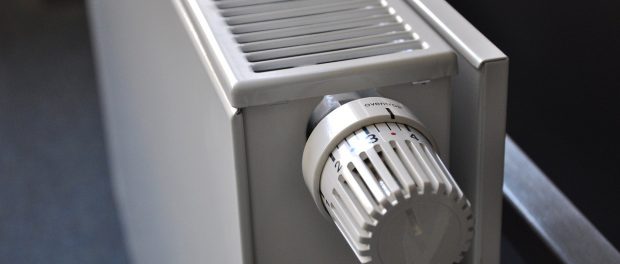How to use central heating without soaring bills, energy expert explains

As winter approaches, Brits can expect rising prices as households are already being warned of a 10% rise on energy bills.
Under the Oct-Dec 2024 direct debit price cap, the average annual bill for typical gas and electricity consumption is £1,717, 41% higher than in Winter 2021/22.
With this in mind, Confused.com energy’s experts have provided their insight into the most easy and efficient ways to use your central heating during the colder months, and the mistakes people are making that are raking up their bills.
1. Not checking and bleeding radiators often enough
“Now is the time to ensure your central heating is working efficiently and helping you stay warm without your energy bills shooting up. A quick check of your boiler and radiators is a good start – if your radiators are cold at the top, they might need bleeding to improve performance.”
If air is trapped in the radiator, this reduces the efficiency of your unit. Bleeding radiators is a simple job- all you need is a radiator key, which you can buy from any hardware store for around £1.
- When your system’s off, open the radiator valve by turning the radiator key
- Have a cloth to hand as some vapour and water could vent out
- Once the hissing stops, the radiator’s been bled
- Tighten up the valve by turning the key in the opposite direction
Never bleed a radiator when the heating’s on as the radiator could be too hot to touch, and any spray from the open vent could scald you.
2. Not having your heating on a timer
There’s a common belief that leaving your heating on low all day is more cost-effective, but that’s not the case. Use a timer – set it to come on half an hour before you wake up and switch it off when you head out. Heating your home only when you need it is key to saving energy.
“Also, make sure your thermostat is set at a comfortable level. In the UK, 18-22°C is ideal for most homes. Focus on heating rooms you use often, and close doors to keep the warmth in.”
 Unless you’re on an economy 7 style tariff, there’s no cheapest time to put the heating on. If you have a hot water tank and economy 7, you might want to heat your tank overnight to take advantage of the reduced rates. But you can’t really preheat your house for the day in the same way.
Unless you’re on an economy 7 style tariff, there’s no cheapest time to put the heating on. If you have a hot water tank and economy 7, you might want to heat your tank overnight to take advantage of the reduced rates. But you can’t really preheat your house for the day in the same way.
“Small improvements like also installing a smart thermostat, which lets you control your heating remotely, can go a long way in making your home more energy efficient and cosy.” Installing thermostat, and thermostatic radiator valves, can save £110 a year on your energy bills, after the initial cost.
3. Not drought proofing your home
To prevent heat is escaping from your home and get the best out of the heating you are using, implement the following quick solutions:
- Seal gaps between skirting boards, loft hatches, window and door frames.
- Ensure carpets have underlay to offer extra insulation.
- Use draught excluders to block gaps under doors.
- Buy keyhole covers and letter boxes with a brush or rubber seal.
- Close curtains in front of all windows.
You could also consider insulating your loft. “About 25% of the heat loss in UK homes happens through the roof, so adding insulation could cut your heating bill dramatically. According to the Energy Saving Trust, laying rolls of loft insulation in a semi-detached house could save you £355 a year in energy bills.”
4. Blocking radiators
Even if there’s a lack of space, it’s never a good idea to put furniture in front of a radiator. Likewise, avoid having curtains that cover or overlap the top of your radiators. Think twice before using a radiator cover. They may look smart, but they block heat that could be warming the room.
“Rather than blocking your radiators by using them to dry clothes, you could also buy a heated clothes airer for around £50. These options look like standard clothes horses, and are electricity-powered, heating the rails at a cost of just 4-10p an hour, they could also help heat up your room without using the central heating.”
If you’re struggling with energy bills:
If you receive benefits or pension, you might also qualify for energy grants to help with your bills.
For more on what to do if you’re struggling to pay your energy bills visit Citizens Advice and Ofgem.

